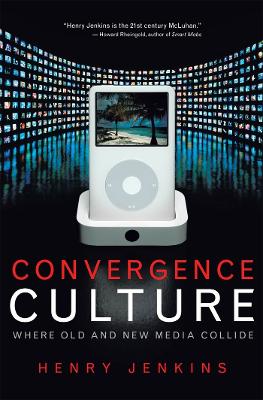Reviewed by clementine on
I really enjoy Jenkins' writing because it is so clear and accessible. It isn't bogged down with academic jargon or cryptic syntax, and he defines new terms he introduces clearly. I also love that he uses contemporary case studies to illustrate his concepts. My undergraduate degree was essentially in pop culture studies, so I love when cultural texts that are seen as banal and frivolous are studied in a serious academic way. I especially enjoyed the chapters on Survivor, The Matrix,and Harry Potter (perhaps because I was quite familiar with each franchise already), but I found each chapter to be fairly interesting and very effective case studies. Jenkins is an extremely astute and intelligent man, but his writing is enjoyable to read. I've read it for school and now I'm reading it for fun. I like that his work straddles the academic and consumer worlds and can be cited in scholarly journals while remaining compelling to the general public.
Really my biggest issue with the book - and Jenkins' writing in general - is that there isn't always a flair to his style. I realize this is quite nit-picky. I found my attention easily held throughout the chapters on subjects with which I was already familiar and interested in. My attention wandered a bit during some parts of the other chapters because there is nothing that wows me about Jenkins' style. I do like that it's clear and accessible, but when the subject matter didn't interest me hugely the style wasn't always quite enough to make reading truly pleasurable. But overall I think this is an excellent book from a legendary media scholar.
By the way - this book was written a decade ago and some of it is pretty funny because the media and cultural landscape has changed considerably since then, and a lot of it seems fairly prescient considering the time it was written. Jenkins effectively predicts the Netflix model in one chapter, for example. Most jarringly, I found this sentence:
"Who would have imagined that Donald Trump would have become a populist spokesman, or that sympathetic images of corporate control could fuel a movement to reclaim democracy?"
Ahh. Who would have imagined indeed...
Reading updates
- Started reading
- 12 October, 2016: Finished reading
- 12 October, 2016: Reviewed
